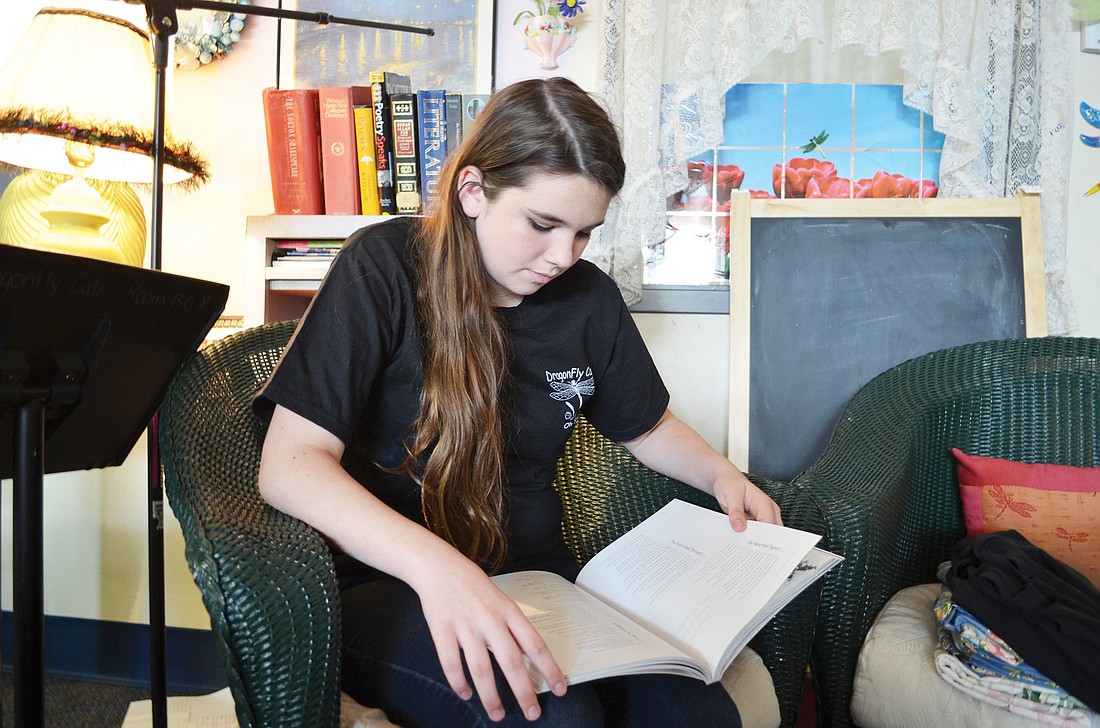- April 22, 2024
-
-
Loading

Loading

Intimacy and connection are at the heart of Poetry Life, a weekend of poetry readings and talks with students, adults and visiting professional poets.
Instead of just passively listening to poets read their works, festival attendees interact with them. It’s an equal exchange of art and ideas.
“Poetry Life is very different from other poetry festivals going on in the United States,” says founder Georgia Court, owner of Bookstore1Sarasota.
Court says most poetry festivals feature adult poets speaking on a panel, with an audience of adults who wish to be poets. “That’s the typical festival, but that’s not what Poetry Life is about,” she says. “The majority of our events are engaging with the community and discussing what poetry means to a community and to people every day.”
The roots of the festival — and Court’s love of poetry — lie in the Chautauqua Institution. Founded in 1874 and located on the western tip of New York on Lake Erie, the Chautauqua Institution is a nonprofit education center that attracts world-renowned artists, writers, poets, musicians and academics each summer to interact with audience members who wish to learn more about a given topic. Court started attending Chautauqua in 1991. Now she hopes to bring a little piece of Chautauqua to Sarasota.
“I want to put the main emphasis on the students because I think people become lovers of literature and the arts when they’re very young. That’s our real focus, because I want students to grow up loving poetry and not be afraid of it.”
– Georgia Court, Poetry Life founder
What started as a poetry reading project with amateur poets reading some of their favorite poems has turned into a poetry mecca with readings and talks by some of the most esteemed contemporary poets. This year’s featured poets include Marie Howe, New York state poet laureate, 2012 to 2014; Billy Collins, United States poet laureate, 2001 to 2003; and Tracy K. Smith, the recipient of the 2012 Pulitzer Prize for poetry.
It’s also become a showcase for student poets. Sarasota County students submitted 196 entries this year to the “Young Voices Poetry Reading” contest. The poems were then sent to Vanderbilt University’s M.F.A. creative writing program and evaluated through a blind judging process. This year, 15 middle and high school students from Booker High School, Sarasota Military Academy and the Student Leadership Academy were selected as finalists who will read their poetry during the festival.
“I want to put the main emphasis on the students because I think people become lovers of literature and the arts when they’re very young,” says Court. “That’s our real focus because I want students to grow up loving poetry and not be afraid of it.”
Payton Saturen is one of the Booker Middle School students chosen to read her work. The eighth-grader has been writing poetry since becoming involved in her school’s poetry club, Dragonfly Café, two years ago. Saturen and her classmates write their own poetry while studying the classics of the past. She says she’ll continue to write her own poems when she begins high school in the fall.
The young poet is a regular at the Poetry Life weekend event. She read some of her favorite poems in sixth grade at the event and has submitted poems every year for a chance to read them in front of the poetry community and her friends and family.
“I like writing in the dark,” says Saturen. “I like it at night because you can then look back on the day and think about your emotions throughout the day. And I like writing in the rain because it’s soothing. Poetry has really helped me grow, not only in my writing but also as a person.”